Turkey and China are attracting attention due to their political past and their recent actions in the economic sphere. Emre Demir, a senior researcher at the Department of Political Science and International Relations of the TED University (Turkish Educational Association) commented on the current situation in Turkish-Chinese relations after President Erdogan’s recent visit to China.
Demir, who works as a guest expert at Peking University under a grant from the Council on Science and Technology of Turkey (TÜBİTAK), is a policy expert on East Asia, China and Chinese foreign policy.
RELATIONSHIP DEMONSTRATES POSITIVE DYNAMICS
President Erdogan, after attending the G20 summit in Japan, paid a visit to China, where he met with the President of the PRC and the Secretary-General of the Chinese Communist Party, Xi Jinping. This was the second meeting between the Turkish and Chinese leaders within a month, following talks on June 15 in the capital of Tajikistan, Dushanbe, at a conference on Interaction and Confidence Building Measures in Asia. These meetings are of crucial importance, and represent a positive turn in Sino-Turkish relations which began in 2016.
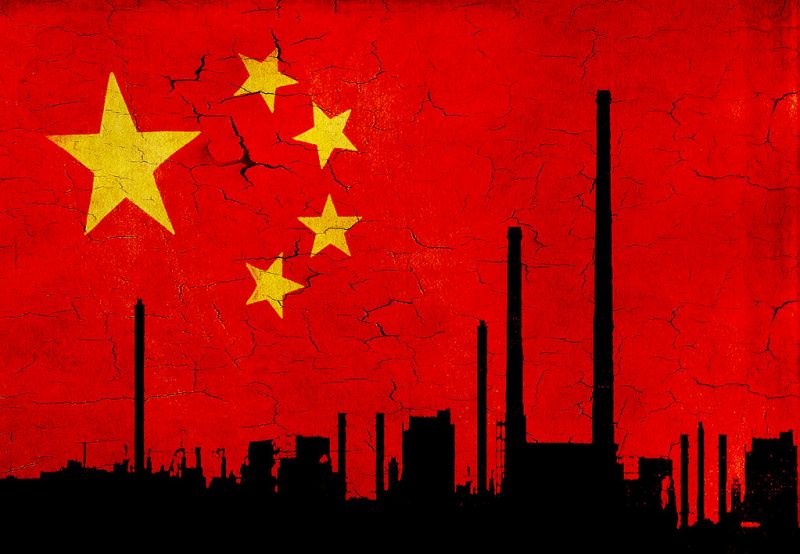
UYGHUR QUESTION
Bilateral relations between China and Turkey have three main areas: the Uyghur issue, trade and economic contacts, and prospects for cooperation in the framework of the One Belt and One Way Initiative.
The most sensitive of these three questions from the point of view of China is the Uyghur question. China calls its colonial period “shameful century,” beginning in the middle of the 19th century and ending in the socialist revolution of 1949. During this period, Western forces and Japan took control of certain areas of China and turned it into a semi-colonial state.
In 1949, the Chinese Communist Party put an end to the civil war, consolidated the country and ensured national independence, adopting the slogan “Never Again!” Because of negative experiences during the colonial period, the Chinese Communist Party reacts extremely painfully when it comes to the issue of state integrity. For this reason, the Chinese authorities, in order to prevent any unrest in the Xinjiang Uyghur Autonomous Region, keep it under tight control, sometimes using authoritarian methods.
TURKEY’S POSITION
Turkey’s position on the Uyghur issue has changed significantly over time. In July 2009, then Prime Minister Erdogan, commenting on the Chinese authorities dispersal of the demonstrations in Urumqi, called Beijing’s actions “almost genocide.” In turn, China perceives the issue as an internal matter, therefore, it expresses a very sharp attitude in response to any criticism of its actions from outside.
Similar incidents occurred after 2009. It is even known that Chinese representatives from time to time recalled Erdogan’s words during trade negotiations with Turkey.
A similar situation occurred in February of this year when the Turkish Foreign Ministry made a another harsh statement. The tension reached such an extreme level that the Chinese ambassador to Turkey warned such statements would anger Chinese investors, and, if they continue, investments in Turkey might end up being blocked.
A VISIT TO BEIJING
An important change in Turkey’s position on the issue occurred during Erdogan’s recent visit to Beijing. Although this moment was not reflected in the Turkish press, the Chinese media reported that Erdogan declared that the Uyghur population lives “a happy life in Xinjiang.” Again, according to statements in the Chinese media, Erdogan, stressing that Turkey opposes extremism and will not allow anti-Chinese speeches to spread, expressed the desire to strengthen mutual political trust and security cooperation with China. The Uyghur diaspora was rather concerned about the rhetoric. In turn, after his meeting with Erdogan, Chinese President Xi Jinping expressed his satisfaction with the Chinese side.
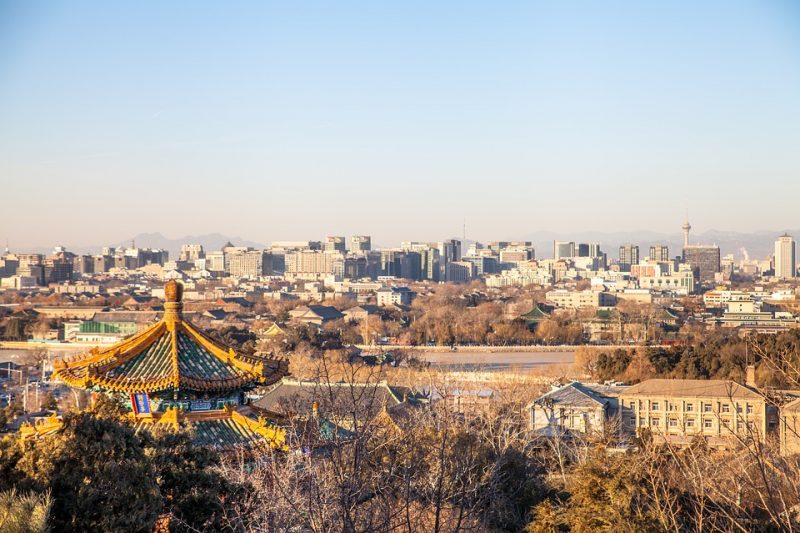
TRADE RELATIONS DEVELOP, BUT…
One of the manifestations of this satisfaction was China granting permission to import Antep pistachios from Turkey, which had been banned for a long time. Meanwhile, the export of Turkish pistachios to China will not go far to cover the significant trade deficit between the two countries. In 2018, a share of less than $3 billion of Turkey’s total turnover of the $23 billion in trade was produced, while the remaining $20 billion went over to Turkey from the Chinese side. Thus, there is a serious imbalance in trade between the two countries.
TURKEY DOES NOT REALIZE CHINA’S IMPORTANCE
The most interesting thing in this situation is that Turkey, even today, does not attach much importance to this situation. Although Turkish ambassador Emin Onen, appointed to Beijing at the end of 2017, and a number of officials in China, are doing serious work in this direction, the government and business circles apparently, have not fully realized the importance of the Chinese market. For example, goods such as marble and travertine, chrome ores and natural borates, which were the three goods Turkey most frequently sold to China in 2018, account for about 40 percent of total exports to China.
When studying other articles on foreign trade, we see that Turkey mainly exports raw materials, agricultural products and intermediate goods to China, while most of the imports from China are industrial products such as electrical machinery and mechanical equipment. Thus, Turkey needs to focus on the export of agricultural products such as sweet cherries and Antep pistachios, as well as raw materials such as marble and industrial goods, which have a higher economic benefit in terms of their surplus-value. Otherwise, the trade imbalance observed today will increase and continue to work against Turkey. In short, the government and the business community need to take seriously the large trade deficit and take measures to remedy this situation.
NEW OPPORTUNITIES FOR TURKEY
The “One Belt and One Road” initiative, proposed by China’s President Xi Jinping in 2013 and called the “21st Century Project”, can open up great opportunities for Turkey. This initiative aims to revitalize the historic Silk Road in modern times and establish transport arteries between China and Europe, both by land and by sea. As part of this initiative, China plans to invest a total of $1 trillion in countries along the “One Belt and One Road” route. Turkey is located in the area of the Central Corridor, which is one of the fundamental locations of the project, and needs to be well established in the coming years. This route, starting in the Xinjiang Uyghur Autonomous Region, passes through the territory of Kazakhstan, Turkmenistan, Azerbaijan and Georgia, before reaching Turkey, and going on to Europe. Turkey, due to its advantageous location both in Europe and Asia, has the potential to attract significant investment from China in areas such as infrastructure and energy. Thus, it is necessary to concentrate on these areas to eliminate the imbalance existing in bilateral trade.
IT IS NECESSARY TO ATTRACT CHINESE TOURIST TO TURKEY
Tourism is another important field for interaction between Turkey and China. A feature that distinguishes Chinese tourists from citizens of other countries is the high level of their expenses during the trip. While the average expenditure of 40 million tourists coming to Turkey is about 700 dollars, the average check of tourists from China is 3 thousand dollars. Simply put, one Chinese tourist spends more than four tourists from other countries combined. Last year, a total of 130 million Chinese tourists visited the different countries of the world, and only 400,000 of them visited Turkey. In the very near future efforts will be made to raise this number to a million.
BOTH COUNTRIES ARE CONCERNED
In addition to economic issues, there is another factor that brings the two countries together – western dominance of the international political system. In other words, both countries are dissatisfied with the hegemony of the West in the international arena. For this reason, they are advocating a transition to a multilateral international system that places the UN at the center and gives more freedom to non-Western countries. In this sense, the transformation of Turkish foreign policy and security strategy, which began after the attempted coup in 2016, most clearly manifests itself in relations with non-Western countries.
In past years, Turkey has pursued a more balanced policy in relations with the West. Today, events such as Ankara’s purchase of S-400 Russian defense complexes show that Turkey is pursuing a policy of maintaining relations with power centers outside the western world. In short, we can say that Turkey, without breaking ties with the Western system, is counting on the support of Russia and China as a balancing factor in, primarily concerning the United States in the Middle East and Eastern Mediterranean.







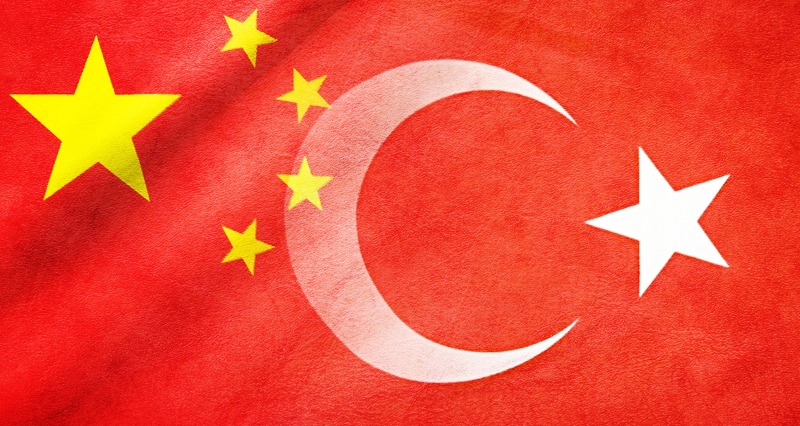
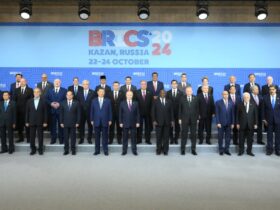

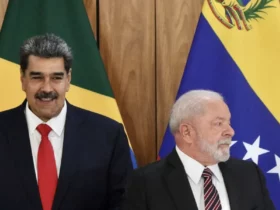
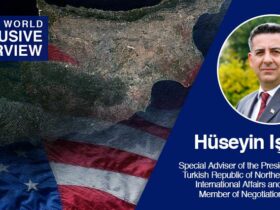

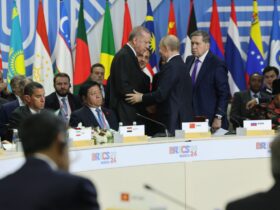



Leave a Reply